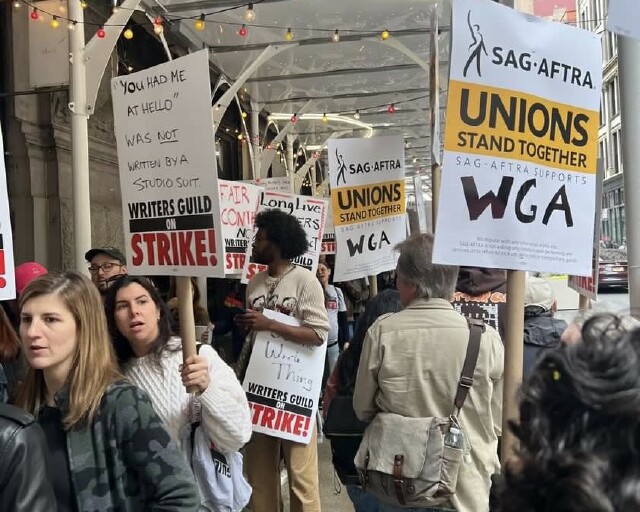Content Is No Longer King. Why Studios Have the Upper Hand in WGA Strike Negotiations

In the network television advertising business, commoditization and programmatic automation have replaced programming brand equity as the dominant value proposition. This shift has been a reality that I have bemoaned for decades, predicting that the combination of diminished programming brand equity and increased commercial inventory supply would ultimately drive down advertising investments. That's now a reality with total 2023 ad spending projected by The Myers Report to be down 7% compared to 2019.
The upcoming network television Upfront presentations, which were once the annual "dance" when networks presented their Fall programming schedules, are now focused on technology, audience impressions and measurement innovation while largely ignoring programming and content equity.
This reality is especially interesting and relevant to the strike against programming production studios by the Writers Guild of America (WGA). In the context of the last strike in November 2007, which lasted 100 days, a major change is the shift in importance of programming vs. scale of the audience it delivers. Keep in mind that reality programming, which now dominates network television, was largely introduced as a lower cost and non-talent dependent alternative during the 2007 strike.
Another shift is the growth and influence of streaming and especially the role of Netflix, Amazon and Apple. These over-the-top services have introduced a radically altered business model that depresses the value of talent. This may be grossly unfair to the networks and studios, but the fact is that the 2007 content model was built on hits and talent, multi-season renewals, and "back-end" participation rights for partners and talent. Networks depended on a structured, consistent and trusted primetime schedule focused on tentpole series with, and here it is again, promotable brand name talent. Today, most programming investments are work-for-hire, are 100% owned by the studio, offer no back-end participation, have limited runs to optimize long-tail viewing, and are distributed on-demand across multiple screens and platforms.
The bottom line is that content is no longer King. Advertising revenues are determined primarily by audience scale and, unless it's sports, rarely are content brand equity and talent a significant influence. Sure, brand safety is considered but even that criteria is being stretched by most advertisers.


